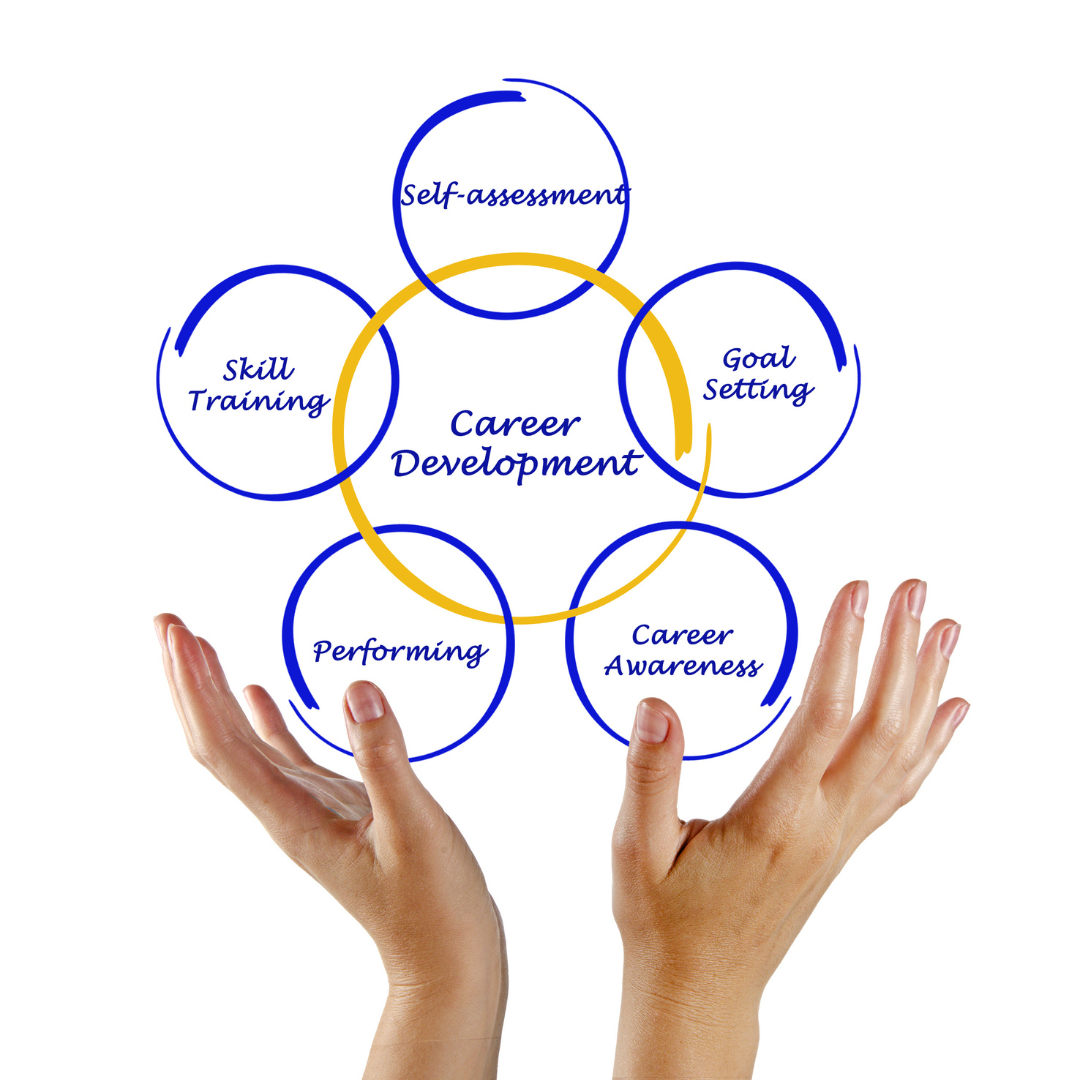Career development is a lifelong process, and it is never too late to start. Your position does not necessarily define a career-it is the lifelong career path you have chosen, the skills you have learned along the way, and your willingness to continue learning throughout your career.
Many employers offer career development programs to their employees. These programs are tailored to the individual employee’s needs. They help employees grow as individuals and as professionals. A career in development means different things to different people. For some, it may mean working with children and families. Others may crave the fast pace of working with Fortune 500 companies. Still, others may opt for development work in nonprofit organizations.
Career Development
Career development planning is setting goals and developing strategies to achieve your career goals. Throughout the process, you will identify skills you need to develop and decide on a career that aligns with your talents, abilities, and interests. You can create multiple development plans, depending on your progress.
Career development is how individuals acquire knowledge, attitudes, and skills that lead to employment and career advancement. This generally involves four activities:
(1) exploring interests, values, abilities, and aptitudes
(2) acquiring skills and knowledge
(3) demonstrating knowledge and skills
(4) transitioning to the workplace
Tips To Develop Your Career
*Assess your strengths and areas to improve
A career assessment is an excellent assessment of your strengths, weaknesses, likes and dislikes, motivations, personality, values, and more. When combined with a little research, this information will help you zero in on a career field that best fits your personality and those attributes you value most.
Depending on the situation, an assessment can be administered orally or in writing and can help employers, teachers, and counselors better understand a person’s skills and abilities. When considering employment or pursuing a higher education program, assessments can help individuals identify potential career paths
*Focus on careers that align with your strengths and abilities
Embarking on your career journey involves a nuanced exploration influenced by familial ties, past experiences, and personal values. Beyond the broad challenge of identifying a suitable career, the crucial task of aligning your choice with inherent strengths and abilities adds depth to your decision-making process. A self-assessment becomes a pivotal tool in unraveling these individual traits, which set you apart in the competitive job market.
Picture yourself considering a career in physiotherapy, particularly enrolling in an ACL course; here “ACL” represents the Anterior Cruciate Ligament, a pivotal element in sports medicine. Conducting a self-assessment would entail gauging your proficiency in empathy, patience, and keen observation-qualities crucial for a successful physiotherapist. Taking the time to evaluate these aspects before making a final career decision can prove to be a wise step, ensuring alignment between your inherent attributes and the demands of the chosen field.
The key takeaway is that your career choices are not one-size-fits-all; there is ample room for you to think freely and consider unique paths. By embracing a liberated mindset in your career exploration, you can carve out a fulfilling professional journey that aligns seamlessly with your distinctive blend of personality, passions, abilities, and talents.
*Develop and enhance your knowledge and skills
Continuous learning and expanding one’s skills are key to career growth. There are several types of training that can help enrich our capabilities. For instance, if you are considering a career as a nurse, it’s a smart move to boost your skills and knowledge with different courses, and not just relying on your nursing degree. When it comes to choosing the right course for your nursing training, paediatric First Aid courses are a great idea and can be really beneficial. These extra courses can not only open up more opportunities for your career but also prepare you for handling any emergencies.
Talking about technical training courses, they equip us with hands-on skills in areas such as programming, data science, and design. Interpersonal training builds critical soft skills such as communication, collaboration, and emotional intelligence. Leadership training empowers us to effectively motivate teams.
Another increasingly valued certification is the SAFe (Scaled Agile Framework) Agilist training. As more companies adopt agile methodologies, understanding frameworks like SAFe helps us thrive in fast-paced environments. The SAFe Agilist certification training prepares us to participate in and facilitate agile teams and processes. It teaches lean-agile principles, program execution, and techniques to deliver value to customers faster. Pursuing relevant certifications like this allows us to stay versatile and competitive.
*Make a vision and set career goals for yourself
A key part of being career ready is clearly understanding your career goals. It is important to set both short-term and long-term goals that align with your personal values.
The first step in successful career development is defining your career objectives. What are they, really? To answer this question, consider your career history. What skills and accomplishments stand out? What type of work interests you the most? Once you have determined your goals, it is time to develop specific career goals. Breaking down your goals into reachable milestones will help you develop a sense of direction.
Consider an individual who envisions a fulfilling air traffic controller career. Reflecting on their career history, they may identify standout skills such as project coordination, risk management, and team leadership gained from previous roles in aviation operations. Their accomplishments could include successfully implementing cost-effective measures that improve operational efficiency. This reflection leads to a realization of a genuine interest in overseeing and optimizing complex air traffic control projects. The individual then formulates specific career goals, such as obtaining project management certifications, gaining experience in larger-scale projects, and enhancing skills in stakeholder communication. By breaking these goals into reachable milestones, like completing certification within a year or leading a significant project within three years, the aspiring air traffic controller further gains clarity and develops a structured plan for career development. In conclusion, this approach ensures alignment with personal values, fostering a sense of purpose and direction in their aviation management career.
Your career is one of the most important aspects of your life, and as it grows, it has the potential to change. You must develop and enhance your knowledge and skills to stay relevant and thrive. One way to do it is by seeking certifications. You can increase your knowledge, skills, and employment prospects by pursuing professional development opportunities.



